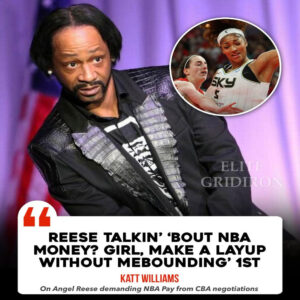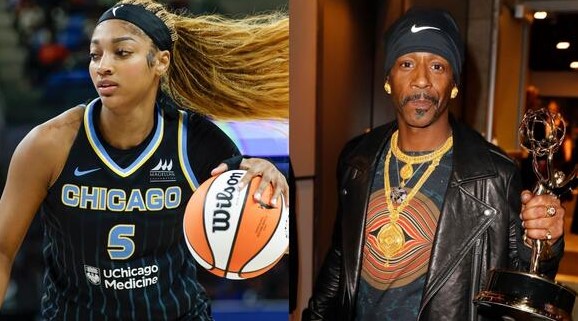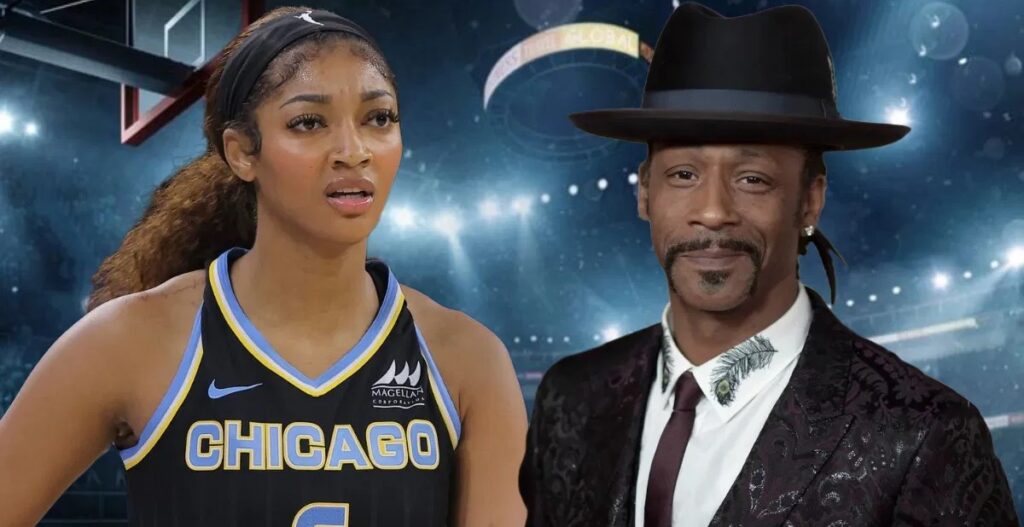Katt Williams Roasts Angel Reese Over NBA-Level Pay Demands During Stand-Up Tour
The comedy world collided with professional basketball in explosive fashion when legendary comedian Katt Williams delivered a viral roast targeting WNBA rising star Angel Reese during his recent stand-up tour, sparking intense debate across social media platforms and sports communities nationwide. The controversial moment occurred at precisely the time when WNBA players are actively pushing for significantly higher compensation during their ongoing Collective Bargaining Agreement negotiations, making Williams’ comedic timing both impeccable and potentially inflammatory.

Williams’ sharp-tongued commentary came just days after Angel Reese made headlines with her bold declaration that WNBA players deserve NBA-level salaries, stating emphatically “At this point, we should be getting NBA money,” a statement that has divided fans, analysts, and industry insiders across the professional sports landscape. The Chicago Sky forward’s confident assertion about compensation equality has become a rallying cry for many supporters of women’s professional basketball, while simultaneously drawing criticism from those who question the financial viability and market demand comparisons between the two leagues.
During his packed performance, Williams delivered his trademark blend of observational humor and social commentary when he quipped about basketball skills and professional athletic performance, drawing massive laughter from the audience while simultaneously igniting a firestorm of controversy that has continued to rage across Twitter, Instagram, and TikTok platforms. The comedian’s specific reference to Angel Reese within the context of professional basketball compensation discussions has been interpreted by many as a direct response to her recent public statements about WNBA players deserving NBA-level financial recognition and respect.
The timing of Williams’ comedic commentary is particularly significant given the current climate surrounding WNBA player compensation discussions, where All-Star players have been prominently wearing “Pay Us What You Owe Us” shirts during games and public appearances while passionate fans have been chanting “PAY THEM!” throughout arenas nationwide. This grassroots movement for financial equity in women’s professional basketball represents a pivotal moment in sports history, where athletes are demanding recognition not just for their athletic abilities but for their entertainment value and cultural impact on society.

Angel Reese’s meteoric rise to prominence has positioned her as one of the most recognizable and marketable faces in the WNBA, with her confident personality, exceptional basketball skills, and outspoken advocacy for player rights making her a lightning rod for both praise and criticism from various segments of the sports community. Her unapologetic approach to demanding better compensation has resonated with younger fans and social justice advocates, while traditional sports commentators and some longtime basketball observers have questioned whether her demands align with current market realities and league revenue generation capabilities.
The viral nature of Williams’ comedy routine demonstrates how entertainment figures can significantly influence public discourse surrounding serious social and economic issues, particularly when their commentary intersects with ongoing labor negotiations and gender equity discussions in professional sports. His ability to generate widespread conversation through humor highlights the complex relationship between comedy, social commentary, and real-world policy debates that affect the livelihoods of professional athletes seeking fair compensation for their talents and dedication.

Critics of Williams’ approach argue that his comedic targeting of Reese undermines the legitimate concerns raised by WNBA players about pay equity, while supporters contend that comedy has always served as a vehicle for examining societal issues and that no topic should be considered off-limits for satirical examination. This divide reflects broader cultural tensions about the appropriate boundaries of humor when discussing sensitive topics related to gender, professional achievement, and economic justice in American society.
The ongoing debate surrounding WNBA compensation extends far beyond individual player statements or comedic commentary, encompassing complex questions about market dynamics, television viewership, sponsorship revenue, and the fundamental value society places on women’s professional athletic achievement compared to their male counterparts. As negotiations continue and public discourse intensifies, both Angel Reese and Katt Williams have inadvertently become central figures in a much larger conversation about fairness, recognition, and the evolution of professional sports in contemporary America.
Whether Williams’ roast will ultimately help or hinder the WNBA’s push for better compensation remains to be seen, but the viral moment has undeniably brought increased attention to the ongoing discussions about pay equity in women’s professional basketball, ensuring that these important conversations will continue to dominate sports headlines and social media discussions in the weeks and months ahead.